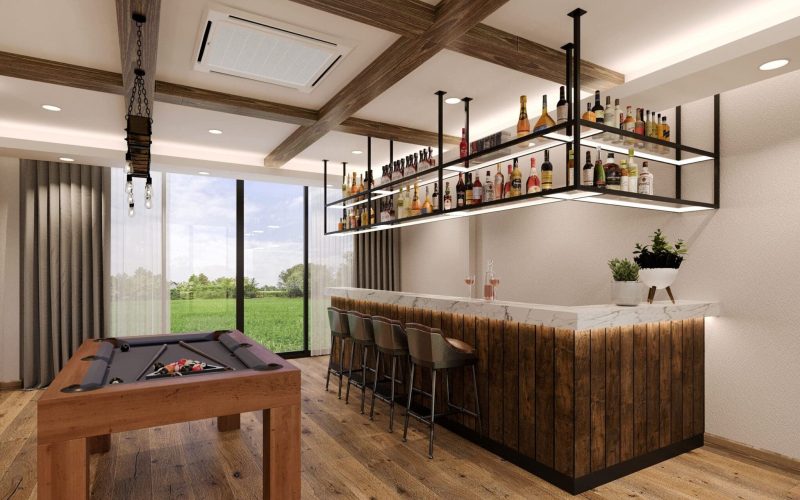Let’s face it, home renovation can feel like a major undertaking. Between the budgeting, the contractors, and the never-ending choices of paint colors (why are there 27 shades of white?!), it’s enough to make anyone pause. But here’s the thing: renovating your home isn’t just about making it look better—it’s one of the smartest investments you can make if you’re looking to increase the value of your property.
In this article, we’ll break down exactly how renovations can add value to your home, which projects offer the best return on investment (ROI), and some tips to make your upgrades worthwhile. Plus, we’ll sprinkle in some real data and examples to keep things grounded and helpful.
Why Renovate? The Real Estate Perspective
When you update or upgrade parts of your home, you’re not just making it more enjoyable for yourself—you’re increasing its market appeal. And in a competitive housing market, that can make a massive difference.
Here’s what a home renovation can do:
- Increase your home’s resale value
- Improve energy efficiency
- Enhance curb appeal (hello, instant first impressions!)
- Make your space more functional and enjoyable
According to the 2023 Remodeling Cost vs. Value Report by Remodeling Magazine, several common renovations offer significant ROI:
| Renovation Project | Average Cost | Average Resale Value | ROI (%) |
| HVAC Conversion (Electrification) | $17,747 | $18,366 | 103.5% |
| Garage Door Replacement | $4,302 | $4,418 | 102.7% |
| Manufactured Stone Veneer | $10,925 | $11,177 | 102.3% |
| Entry Door Replacement (Steel) | $2,214 | $2,235 | 100.0% |
| Minor Kitchen Remodel | $26,790 | $22,963 | 85.7% |
| Siding Replacement (Vinyl) | $16,348 | $13,257 | 81.1% |
Yup, some renovations even pay for themselves—and then some.
High-ROI Renovations Worth Considering
Not all renovations are created equal. Some are purely cosmetic, while others provide serious bang for your buck. Here are the ones that tend to deliver the most value:
1. Kitchen Refresh
The kitchen is often referred to as the heart of the home. Even minor kitchen remodels can yield big results.
Minor Kitchen Remodel Includes:
- Refacing cabinets
- Updating countertops
- New appliances
- Fresh paint and flooring
Average ROI: Up to 85.7%
2. Bathroom Upgrades
A clean, modern bathroom is a huge selling point.
Potential Updates:
- Replacing fixtures
- New tiles or flooring
- Upgraded vanity and lighting
Average ROI: 60-70%
3. Curb Appeal Enhancements
First impressions matter! Even relatively inexpensive updates to the exterior can pay off.
Easy Wins:
- New siding or stone veneer
- Modern garage and entry doors
- Landscaping improvements
Average ROI: 70-102%
4. Energy Efficiency Improvements
With rising energy costs, buyers love homes that are efficient and eco-friendly.
Consider These:
- Window replacements
- HVAC upgrades
- Improved insulation
Bonus: You may qualify for tax credits or rebates.
5. Flooring Updates
New flooring can completely transform a space. Hardwood or luxury vinyl plank (LVP) are popular, durable options.
ROI: Varies, but can be up to 70% depending on quality and room.
Renovation Strategies for Maximum Value
To make the most of your renovation investment, keep these strategies in mind:
Think Like a Buyer
Walk through your home as if you’re seeing it for the first time. What sticks out? What looks outdated? What areas feel cramped or underused?
Don’t Overdo It
Yes, you want your home to shine, but over-renovating for your neighborhood can be a costly mistake. You likely won’t get back that extra $50,000 kitchen remodel in a neighborhood full of starter homes.
Focus on Functionality
Storage, layout, and lighting can dramatically improve how a home is perceived. People love smart spaces that make life easier.
Keep It Neutral
Bold designs can turn off potential buyers. Go for a neutral palette with pops of character that are easy to swap out.
Real Talk: What Doesn’t Add Value?
Not every upgrade is worth the investment. Here are a few renovations that typically don’t add much value:
- High-end luxury additions (home theaters, wine cellars, etc.)
- Overly custom designs
- Swimming pools (these can actually be a deterrent in some markets)
- Wall-to-wall carpeting
The DIY vs. Pro Debate
If you’re handy, you might be tempted to DIY some of your renovations. That’s totally fair—you can save a ton on labor costs.
DIY Pros:
- Cheaper upfront costs
- Creative control
- Good for cosmetic or small projects
DIY Cons:
- Time-consuming
- Mistakes can be costly
- May not meet code or pass inspection
For bigger jobs (like electrical, plumbing, or structural changes), it’s usually smarter to hire a pro. Plus, professional work can reassure potential buyers.
Financing Your Renovation
Don’t have $30,000 laying around? You’re not alone. Here are some ways to finance your renovation project:
- Home Equity Loan: A lump-sum loan based on your home’s equity
- HELOC (Home Equity Line of Credit): Works like a credit card
- Cash-Out Refinance: Refinance your mortgage and take cash out
- Personal Loan: Unsecured and quick, but higher interest rates
Be sure to compare options and talk to a financial advisor before diving in.
Case Study: Real-World Example
Meet Sarah and Mike. They bought a 1980s fixer-upper for $280,000. Over three years, they:
- Did a $20K kitchen remodel
- Updated the bathrooms for $10K
- Replaced siding and the garage door for $15K
- Spent $5K on landscaping and curb appeal
Total Investment: $50,000
Appraised Value After Renovation: $375,000
Equity Gained: $45,000 (not counting value from mortgage payoff!)
Not bad, right?
Final Thoughts: Is Renovating Worth It?
In most cases—yes! Especially if you’re strategic about where you invest your money. Even if you’re not planning to sell right away, living in a space you love and knowing it’s gaining value is a pretty sweet deal.
So whether you’re tackling a weekend project or planning a full-scale remodel, just remember: smart renovations aren’t an expense—they’re an investment.
Ready to roll up your sleeves? Your dream home (and a nice property boost) might be just a renovation away.









